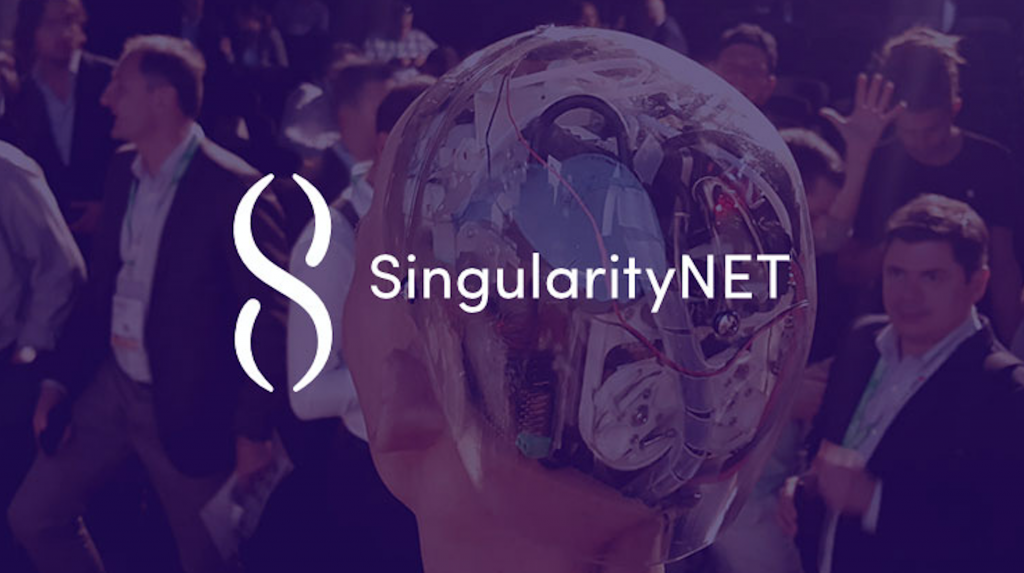
SongSplitter will become the very first ever AI-driven SingularityNET powered application for splitting vocals from a music track. The app has been created using the recently launched Java SDK to help and encourage developers to create apps based on SingularityNET AI.
SongSplitter will be the first in a long series of mobile apps leveraging SingularityNET AI agents to deliver intelligent services to users. The SongSplitter app is in its first release and allows a user to separate vocal and accompaniment from the input audio. The app saves the split results locally and retains the ability to play all previously split results directly from within the included multi-track player.
This application constitutes a real-world demonstration of how Android app developers can easily integrate services found on our platform and leverage the power of decentralized AI. It illustrates the viability of the SingularityNET blockchain-based AI protocol and marketplace as a means of disseminating and monetizing AI tools and products beyond the desktop and server and into the mobile arena.
Opening up The SingularityNET AI to the world
The launch of the SongSplitter app through Google Play is possible thanks to a recently launched Java SDK available on our Developer Portal, which allows developers to create a SingularityNET service client in the Java programming language.
“We’re tremendously happy to announce that with this SDK it is now possible to connect Android mobile apps to the SingularityNET platform, enabling AI services to be accessed by apps found on the Google Play Store and over 2.5 billion Android devices,” said the company in a press release.
Developers around the world can create mobile apps utilizing advanced AI services available on the SingularityNET platform. A user prepares input data using a mobile application, sends this to the SingularityNET platform, calling a specified service via a proxy server, and then receiving a response after the Service has processed the data.
The diagram below illustrates a common pipeline of interaction between a mobile app and the SingularityNET platform
The diagram encapsulates the overall process and consists of a mobile device app, a payment proxy server and a SingularityNET service.
The mobile app provides a rich UI and obtains inputs, it then presents the output using a SingularityNET service. The payment proxy server is required to manage Ethereum private keys safely because the SingularityNET platform is a Decentralised Blockchain-based project and utilises a native ERC20 token known as AGI. Both the mobile app and payment proxy server are parts of the SingularityNET client application.
The final component is the SingularityNET service which does the main AI-related work. For example, their team developed the SongSplitter app that connects to SingularityNET and calls the “sound-spleeter” service.
“We truly believe we are building something unique in the market and the SongSplitter app is a first demonstration of what can be achieved thanks to decentralized AI,” concluded the company.
The SingularityNET AI
SingularityNET foundation is a non profit foundation founded by AI pioneer, Dr. Ben Goertzel. It’s main product is the SingularityNET platform, a full-stack AI solution powered by a blockchain protocol.
As Ben Goertzel said in an interview for intelligenthq: “SingularityNet is a society of minds created by different people, tools, different AI agents which are collaborating on different problems. SingularityNET lets anyone create, share, and monetize AI services at scale. The world’s decentralized AI network has arrived.
SingularityNET was born from a collective will to distribute the power of AI. Sophia, the world’s most expressive robot, is one of their first use cases. Today, she uses multiple AI modules to see, hear, and respond empathetically. Many of her underlying AI modules will be available open-source on SingularityNET.”
Indeed, the platform’s core goal is to provide an intelligent fabric for AI algorithms to talk to each other — and in doing so, to provide both a teeming commercial marketplace for advanced AI solutions across vertical markets and the basis for the emergence of the world’s first true Artificial General Intelligence. The SingularityNET founders believe in open source and decentralized control, so that no single individual, corporation, or government will be able to dominate AI as it becomes increasingly more generally intelligent and capable.

Hernaldo Turrillo is a writer and author specialised in innovation, AI, DLT, SMEs, trading, investing and new trends in technology and business. He has been working for ztudium group since 2017. He is the editor of openbusinesscouncil.org, tradersdna.com, hedgethink.com, and writes regularly for intelligenthq.com, socialmediacouncil.eu. Hernaldo was born in Spain and finally settled in London, United Kingdom, after a few years of personal growth. Hernaldo finished his Journalism bachelor degree in the University of Seville, Spain, and began working as reporter in the newspaper, Europa Sur, writing about Politics and Society. He also worked as community manager and marketing advisor in Los Barrios, Spain. Innovation, technology, politics and economy are his main interests, with special focus on new trends and ethical projects. He enjoys finding himself getting lost in words, explaining what he understands from the world and helping others. Besides a journalist, he is also a thinker and proactive in digital transformation strategies. Knowledge and ideas have no limits.




























